the ultimate Morocco travel guide
Welcome to Morocco: A Traveler’s Paradise
Set in the northwest corner of Africa less than 10 miles from Spain, Morocco is a world apart from Europe. Morocco is a country that draws you in, you’ll be spellbound by Morocco’s exquisite landscapes and exhilarating cities.
Discover the mystical imperial cities of Casablanca, Fes and Marrakech. Morocco also features a gorgeous coastline, the famous Sahara Desert, the jagged, usually snow-capped Atlas Mountains and colorful, aromatic markets filled with rich scents of spices. There is so much to see in this incredible North African country. Ruled at various times by Berbers, Arabs, Spanish conquistadors and the French and once home to a large Jewish community — Morocco represents a fascinating kaleidoscope of cultures.
History & Culture
Morocco has four imperial cities: Marrakesh, Fes, Meknes, and Rabat. Rabat is the current capital city. Although a modern city at first glance, it has several interesting historical attractions, such as the Kasbah of the Oudaias, the old medina, and the Hassan Tower. The gleaming Royal Mausoleum is also well worth a visit. Known as the Red City, Marrakesh is famous for its old medina, numerous souks, ancient palaces like Badi Palace and Bahia Palace, the striking Koutoubia Mosque, the energetic Djemaa el-Fna, and the Saadian Tombs. The former capital of Fes boasts plenty of stunning architecture, though it is perhaps most known for its large tanneries and for being home to one of the oldest universities in the world. Meknes has one of the most impressive monumental gates in all of Morocco, Bab el-Mansour. Horse drawn carriages are a great way to explore the charming and relaxed imperial city.
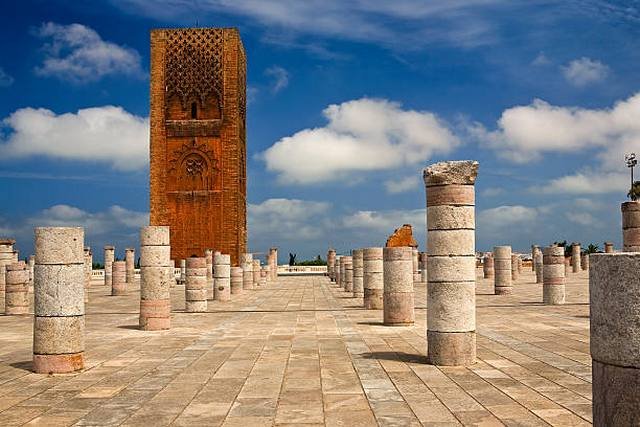
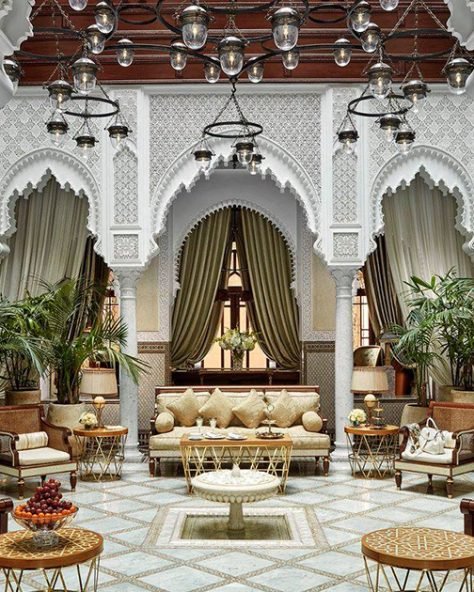
Best Time to Visit Morocco
The best time to visit Morocco is during the spring (March to May) and autumn (September to November), when the weather is mild and pleasant. Summer can be hot, while winters can be cool, especially in the mountains.
Must-Visit Places in Morocco
The bustling and vibrant buzz of Marrakesh medina sums up Morocco for many visitors and is a major tourist attraction. The old city is entered from the vast plaza of Djemma el-fna Square where, it seems, half the city converges throughout the day and into the evening to hang out with the stall vendors, traditional musicians, snake charmers, and random acrobats.
Once inside the medina itself, you enter a world of maze-like alleyways and shopkeeper hustle. It's an experience full of colorful and noisy local life and not to be missed on your Moroccan sightseeing trails.
- Fez: Discover the ancient medina, vibrant markets, and stunning mosques of Morocco's cultural capital.
- Chefchaouen: Admire the blue-washed buildings, stunning mountain views, and relaxed atmosphere of this charming town.
- Essaouira: Enjoy the beautiful beaches, vibrant markets, and laid-back atmosphere of this coastal town.
- Ouarzazate: Explore the stunning desert landscapes, ancient kasbahs, and traditional Berber villages of this desert oasis.
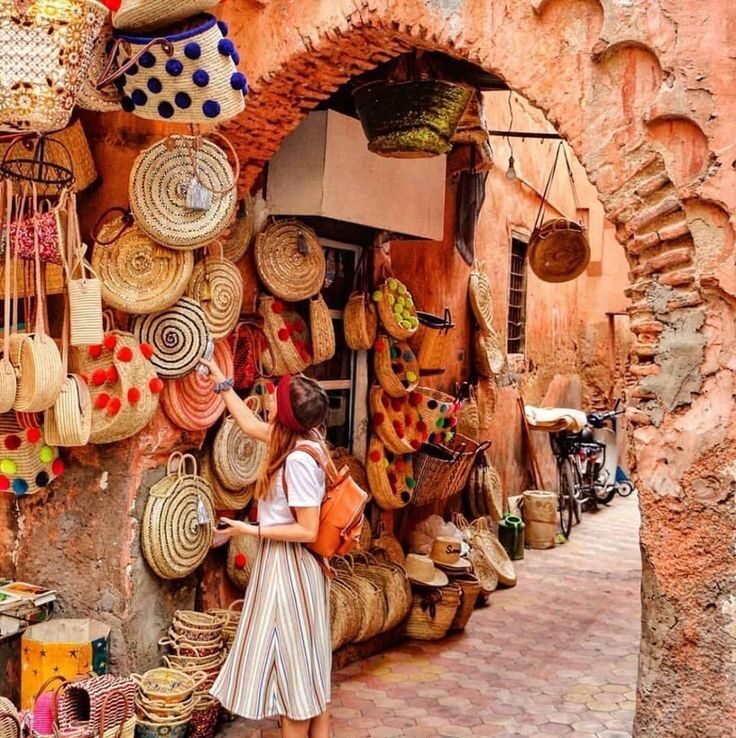
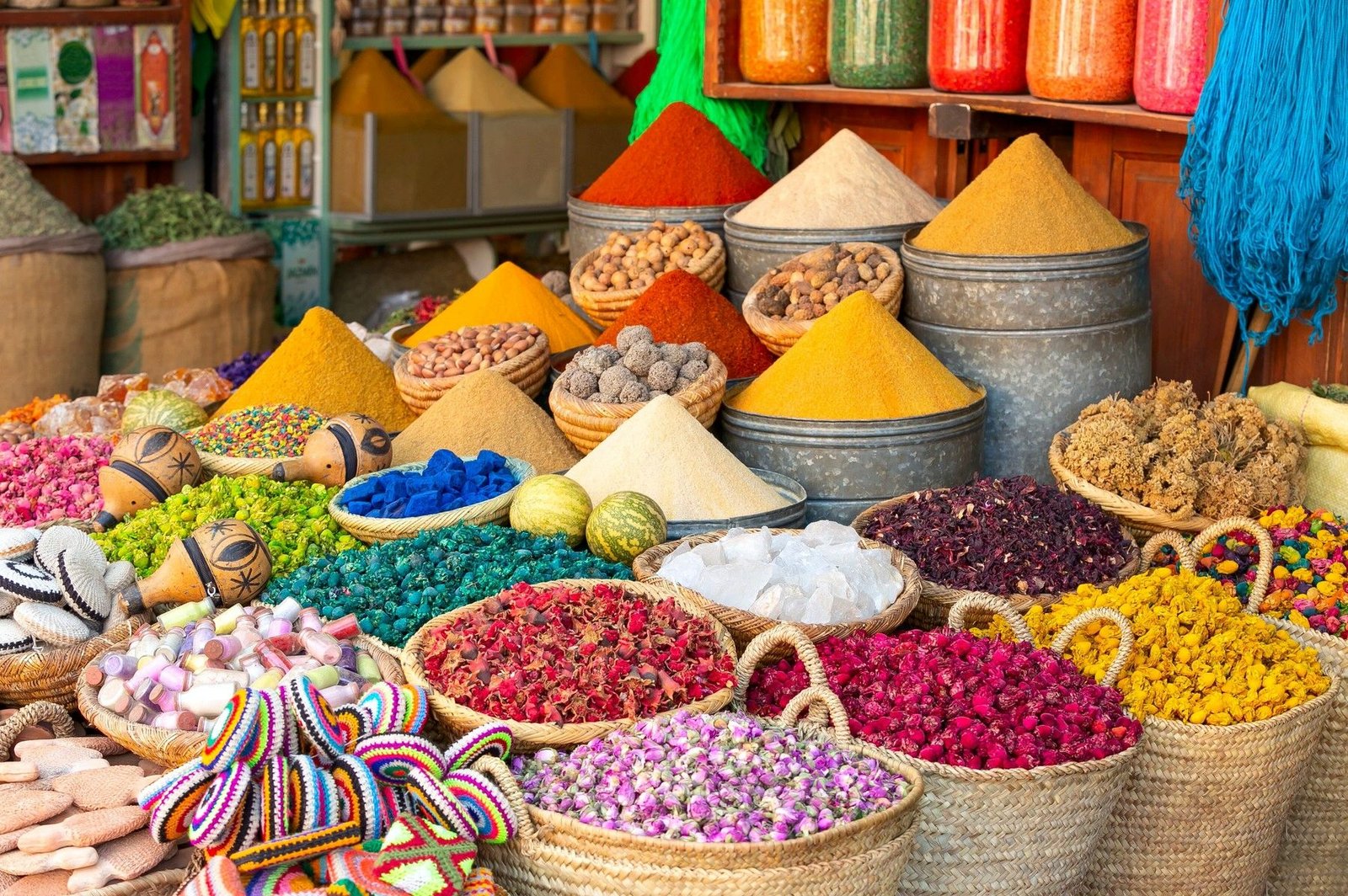
Spices & Cuisine
Moroccan cuisine has influenced top chefs and restaurants all over the world, but you’ll never find it as tasty or as subtle as the food served up in a Moroccan home. Essentially, Moroccan cooking combines the desert nomads’ diet of mutton, vegetables and dairy produce with more refined and exotically spiced specialities – often of Syrian origin and introduced in Morocco at the time of the Arab conquest. But over the centuries it has also incorporated other influences: southern European (olives, olive oil, fruit, tomatoes), sub-Saharan African, and French
Desert Adventures
Inland, in Morocco’s eastern Sahara region, are the grand and rippling sand dunes of the Erg Chebbi, where would-be explorers and adventure-seekers head to get a dose of desert action. This is prime territory for dune-surfing, four-wheel-drive dune-bashing, and the (much more authentic) camel trekking. For those with less of an active nature, just sitting amid the sand dune splendor is worthy enough of the long journey out here. For most travelers who make it this far, the highlight is spending the evening at a desert camp amid the dunes themselves.
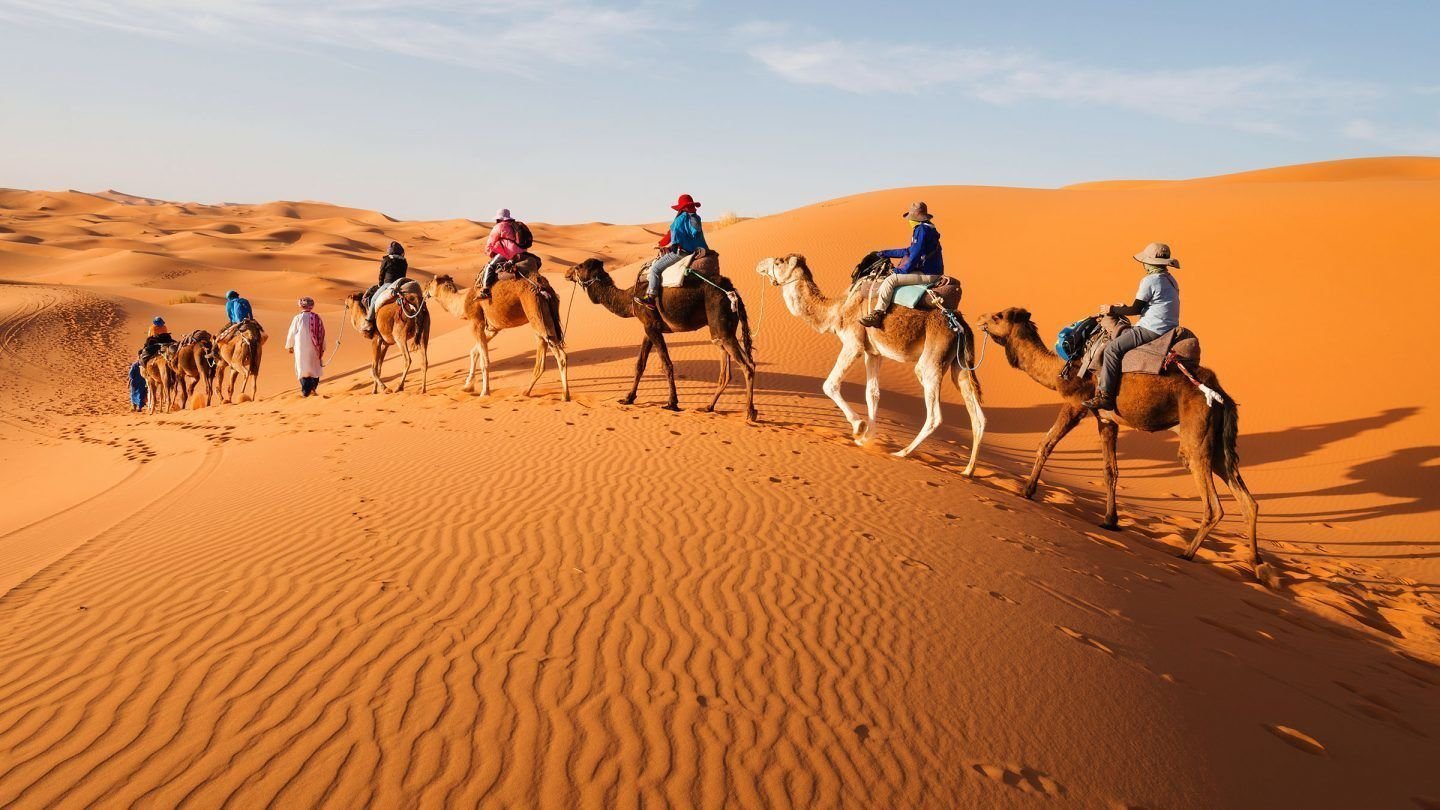
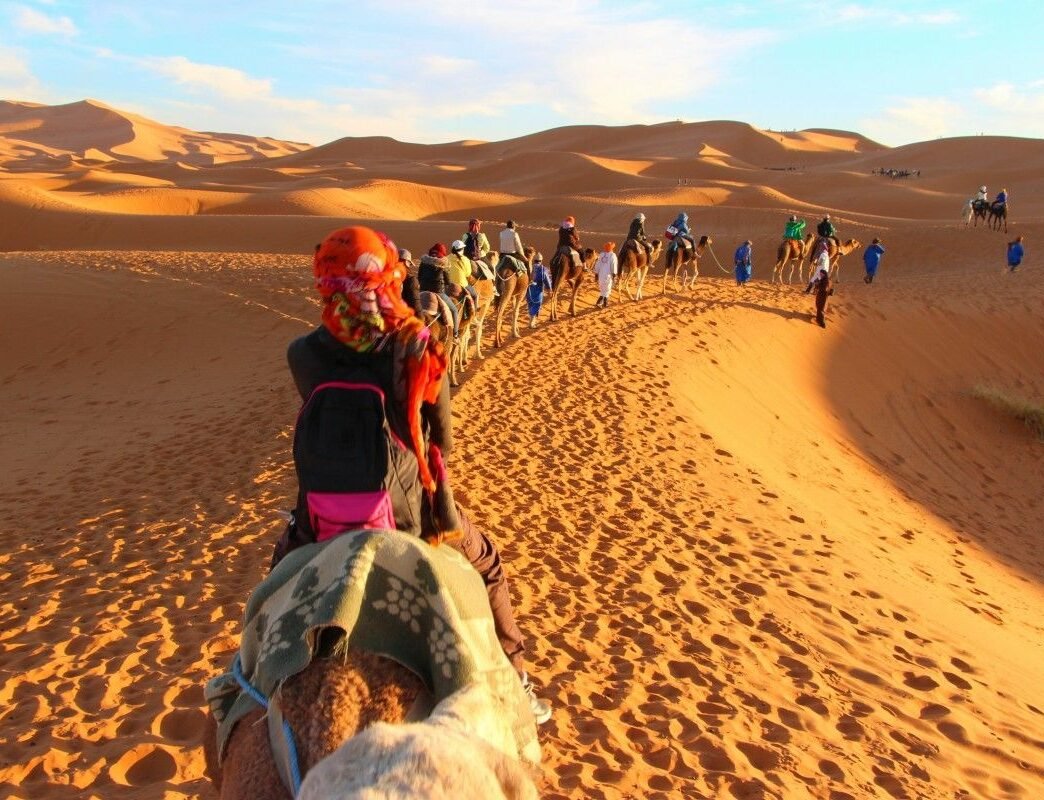
Getting Around Morocco
* By Plane: Fly into one of Morocco’s four international airports: Casablanca, Marrakech, Agadir, or Tangier.
* By Train: Take the train from Casablanca to Marrakech, Fez, or other major cities.
* By Bus: Use buses to travel between cities and towns.
* By Taxi: Take a taxi or grand taxi to get around cities and towns.
Accommodation in Morocco
* Hotels: Choose from a range of hotels, from budget-friendly options to luxury resorts.
* Hostels: Stay in social hostels, which offer a great way to meet other travelers.
* Camping: Camp in the desert or in traditional Berber villages.
Budget and Currency
* Currency: The Moroccan dirham is the local currency, although euros and dollars are widely accepted.
Visas and Travel Documents
* Travel Documents: Make sure your passport is valid for at least six months beyond your travel dates.
HOW DO I Travel to Morocco
Morocco is easily accessible by air, with numerous flights available from cities throughout Europe, the Middle East, and North America.
Flights
Several airlines offer direct flights to Morocco, including:
Royal Air Maroc: The national airline of Morocco, offering flights to major destinations worldwide. (www.royalairmaroc.com)
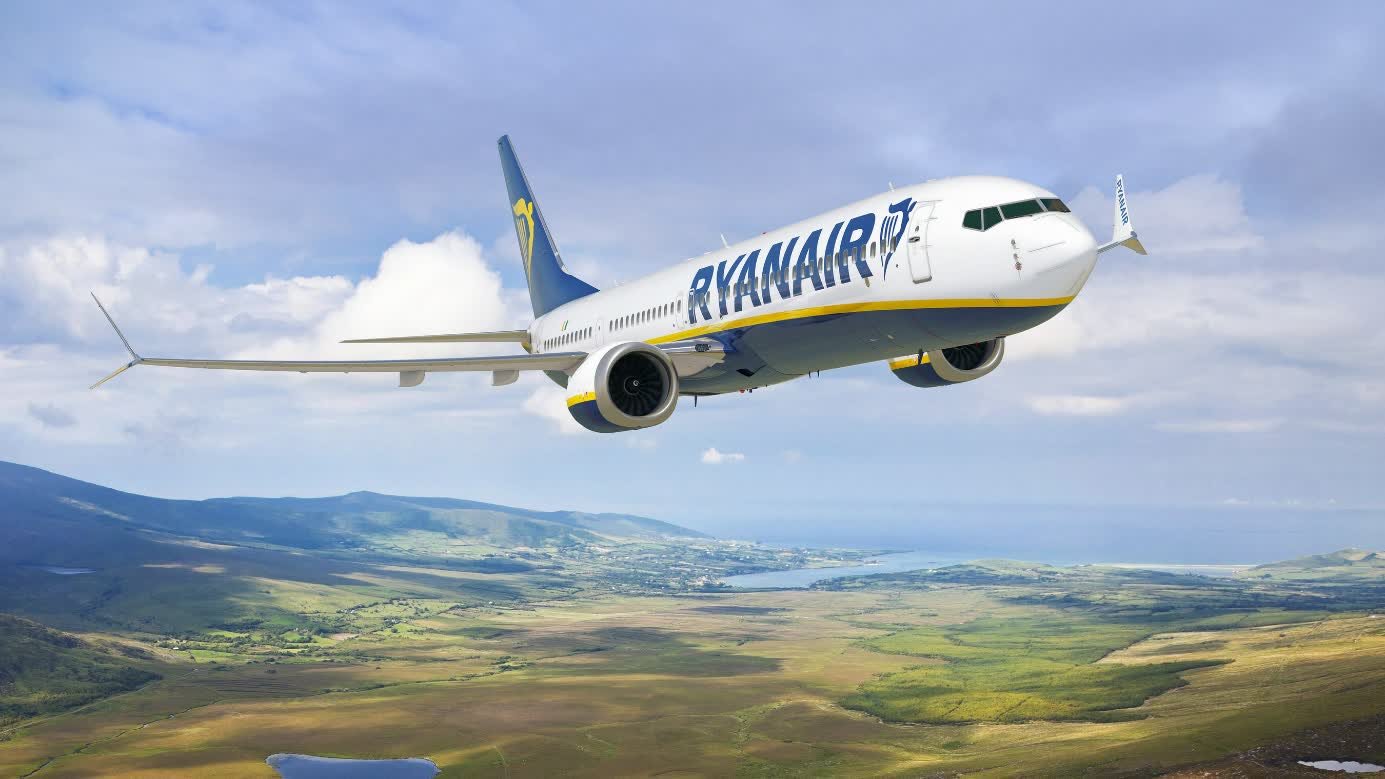
Airports
Morocco has several international airports, including:
Mohammed V International Airport (CMN): Located in Casablanca, this is the country’s main gateway.
Menara Airport (RAK): Located in Marrakech, this airport serves as a secondary hub.
Fez-Saïss Airport (FEZ): Located in Fez, this airport serves the northern region of Morocco.
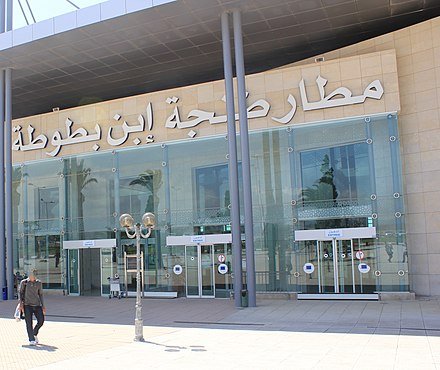
Staying Safe in Morocco
Morocco is a popular tourist destination and generally a safe country to travel in However, as with any major tourist hub, it’s essential to exercise caution and take necessary precautions to ensure your safety.
* Be aware of your surroundings, especially in crowded areas.
* Respect local customs and traditions.
* Stay hydrated and bring sunscreen.
* Avoid traveling alone at night.
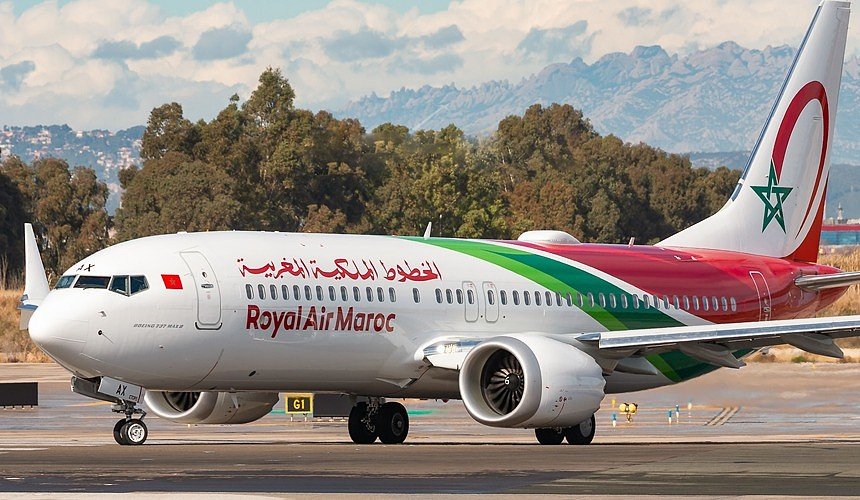
Air Arabia: A low-cost carrier operating flights to Morocco from various European and Middle Eastern cities. (www.airarabia.com)
Lufthansa: A major European airline offering flights to Morocco from several German cities. (www.lufthansa.com)
Eurowings: A low-cost carrier operating flights to Morocco from various European cities. (www.eurowings.com)
EasyJet: A low-cost carrier operating flights to Morocco from several European cities. (www.easyjet.com)
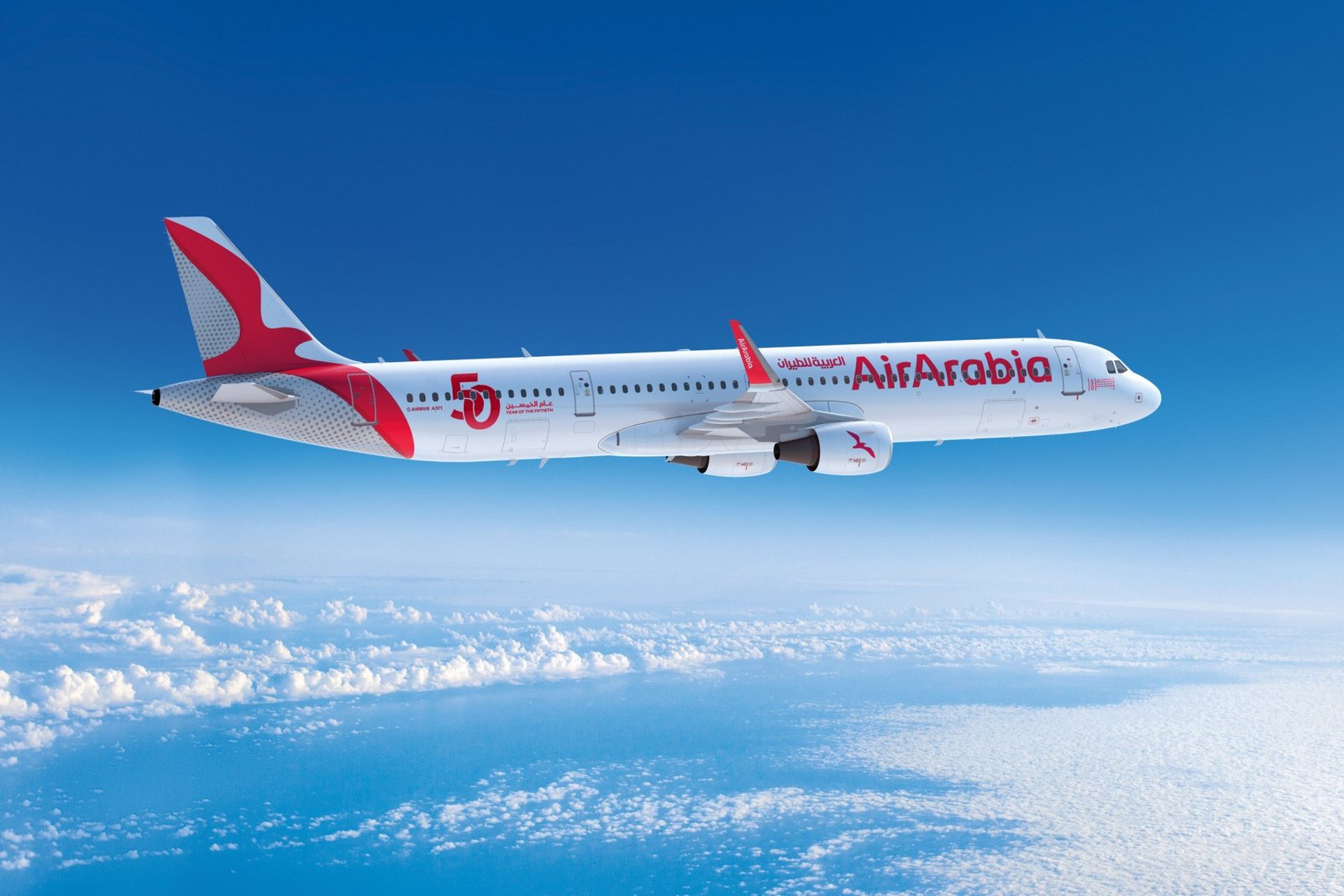
Ibn Battouta International Airport (TNG): Located in Tangier, this airport serves the northern region of Morocco.
Ouarzazate Airport (OZZ): Located in Ouarzazate, this airport serves the southern region of Morocco.
Agadir Airport (AGA): Located in Agadir, this airport serves the southern region of Morocco.
Office National des Aéroports
For more information about Moroccan airports, please visit the Office National des Aéroports website (www.onda.ma).

Equipment and Packing
To ensure that you are well-prepared for your trip to Morocco, we recommend the following equipment and packing guidelines:
Cultural Tours
Yoga Trips and Trekking Tours
General Tips
Packing List
Comfortable clothing and shoes,Light jacket or fleece jumper,Sunscreen and sun hat,Sunglasses,Insect repellent,First aid kit,Water bottle.
If you have any specific questions or concerns about equipment or packing, please don't hesitate to contact us. We are happy to help and want to ensure that you have a safe and enjoyable trip to Morocco.
Holidays and Festivities in Morocco
Morocco celebrates a range of festivals and holidays throughout the year, including both non-religious and Islamic celebrations. Here are some of the most significant holidays and festivities in Morocco:
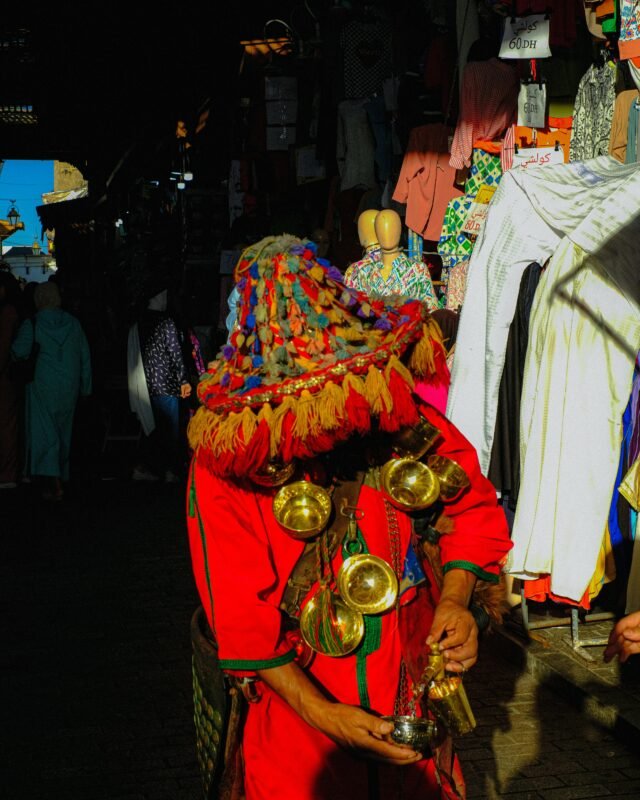
Non-Religious Festivals
The following non-religious festivals are fixed in the calendar:
January 1: New Year’s Day: A public holiday marking the beginning of the new year.
May 1: Labour Day: A public holiday celebrating workers’ rights and international solidarity.
July 30: Throne Day: A public holiday commemorating the coronation of King Mohammed VI.
August 14: Reunification Oued Ed-Dahab: A public holiday marking the reunification of the Oued Ed-Dahab region with Morocco.
August 20: Anniversary of the King and People’s Revolution: A public holiday celebrating the anniversary of the revolution that led to Morocco’s independence.
November 6: Green March Day: A public holiday commemorating the Green March, a peaceful protest that took place in 1975.
November 18: Independence Day: A public holiday marking Morocco’s independence from France.
Islamic Festivals
Morocco’s Islamic festivals follow the Islamic calendar, a lunar calendar that moves through the solar year by about 11 days annually. The two main Islamic feast days are:
Feast of Breaking the Fast (Eid al-Fitr): A three-day festival marking the end of Ramadan, the Islamic holy month of fasting.
Feast of Sacrifice (Eid al-Adha): A four-day festival commemorating the willingness of the Prophet Ibrahim (Abraham) to sacrifice his son Ismail (Ishmael).
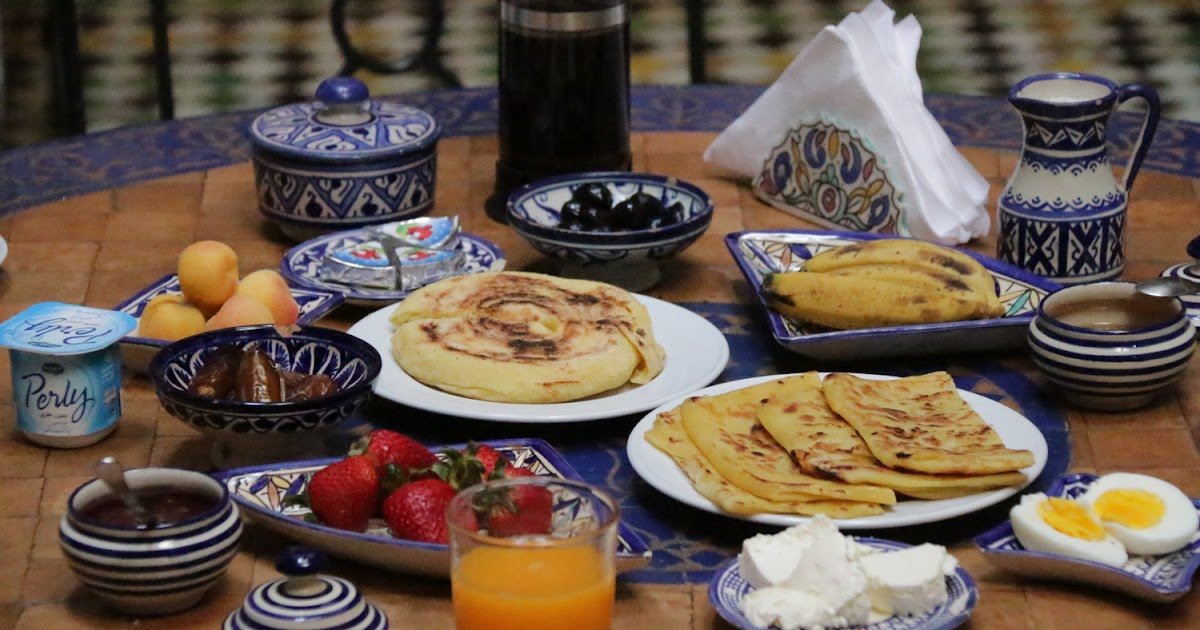
Useful telephone numbers
Police: 190 (or 112 from mobile phones)
Gendarmerie Royale: 177 (police outside the cities)
Ambulance: 150
Fire brigade: 15
Conclusion
Morocco is a destination that offers a unique blend of culture, history, and natural beauty. With its vibrant cities, stunning landscapes, and welcoming people, Morocco is a must-visit destination for any traveler. Whether you’re looking for adventure, relaxation, or cultural immersion, Morocco has something for everyone.
